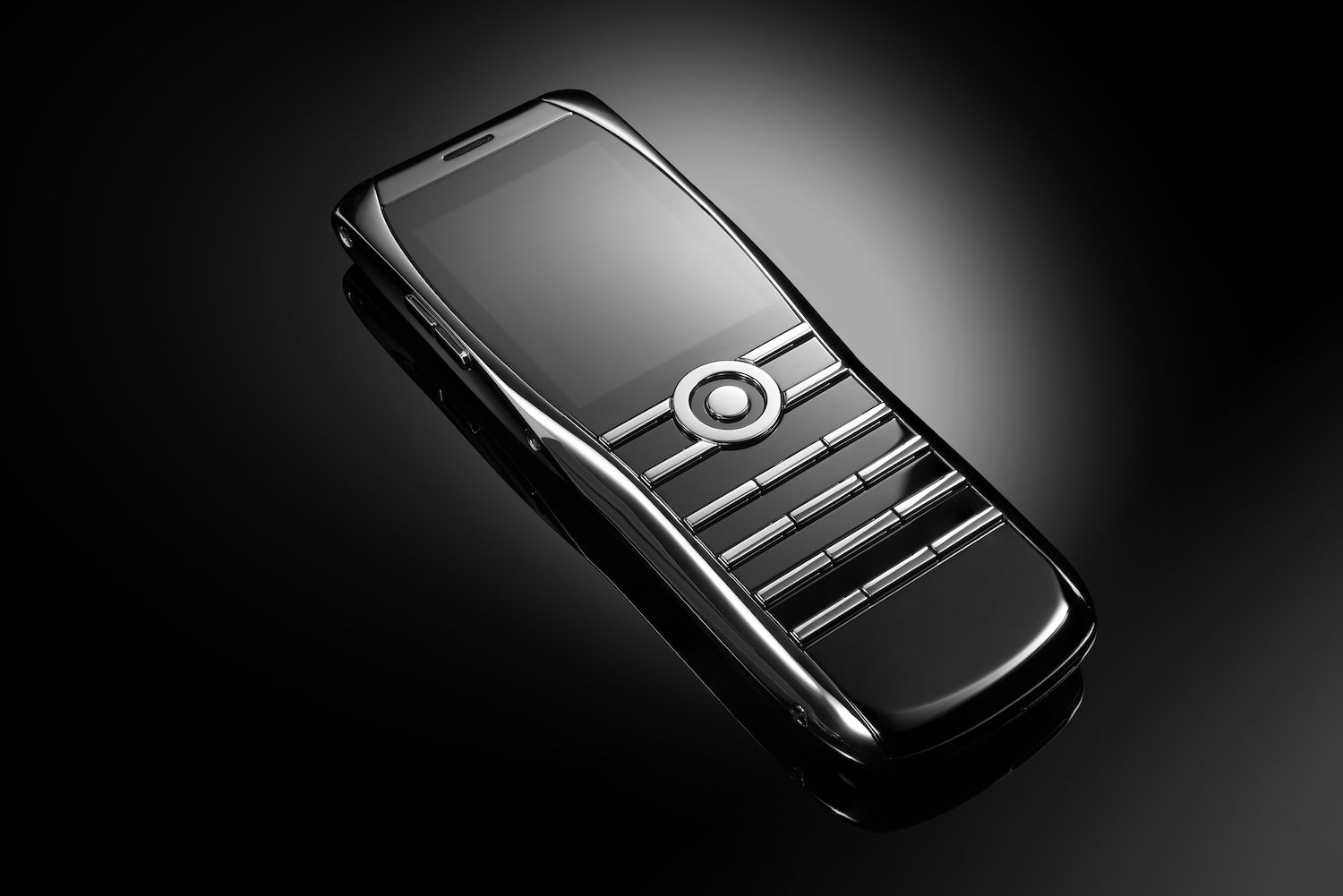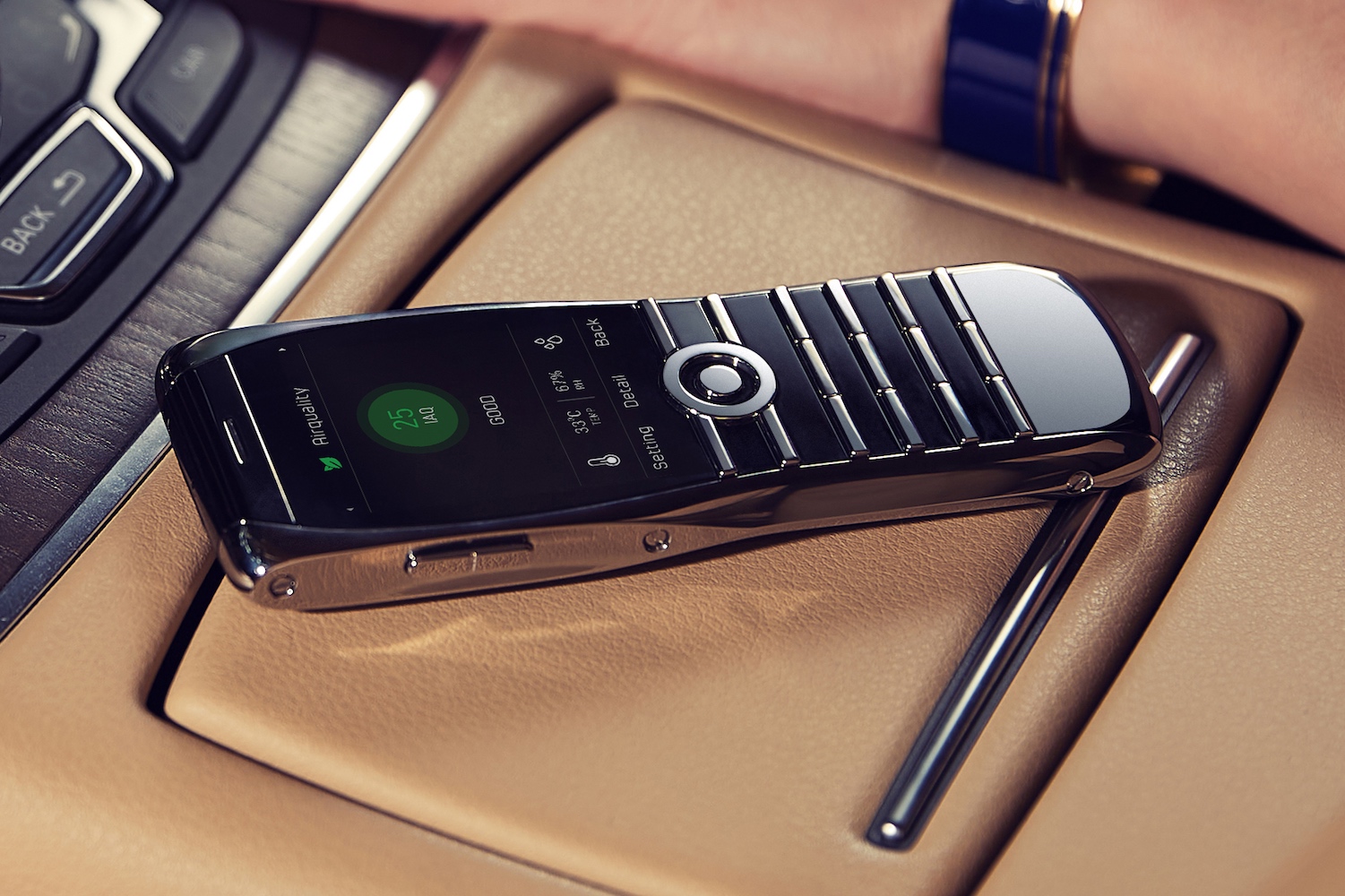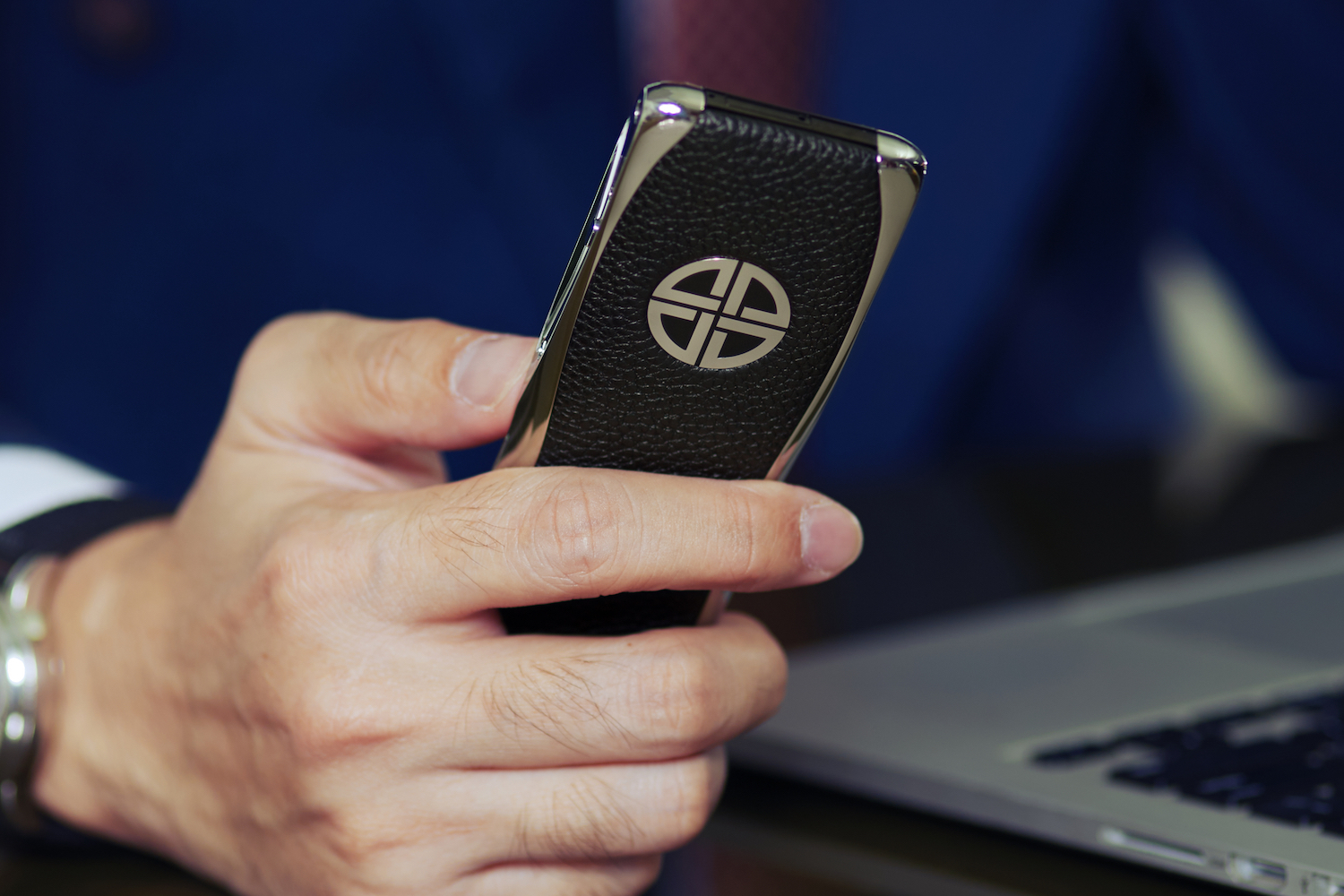“We don’t want to get mixed up in a technological arms race,” Hutch Hutchison, vice president of design and co-founder of phone startup Xor, told me about the unusual Xor Titanium phone, a new luxury device expected to launch early in 2021. The technological arms race, as Hutchison refers to it, is the backbone of the annual upgrade cycle followed by Samsung, Apple, and most other big-name brands, and arguably drives regular new purchases.

To avoid the arms race, the Xor Titanium is the least technologically advanced phone I’ve discussed in a while, to the point where it doesn’t even have Bluetooth on board. So if tech isn’t the reason to buy, what is? Hutchison doesn’t see the phone as a challenger to the smartphone, but as a tactile, personal product people will buy with their heart and not their head, and cherish for years to come.
Beginnings
The last time I spoke at length about a luxury mobile phone, it was when British phone maker Vertu — known for its expensive, hand-built phones — was still operational. The link between Xor and Vertu is closer than the pair simply sharing a similar ethos, as Hutchison was head of design at Vertu, and before that, he worked at Nokia, where Vertu was born. Although Xor is a very different company from Vertu, the lux-phone pioneer’s name repeatedly comes up, and was the reason Hutchison was contacted in the first place.

“I get a lot of phone calls from people wanting to do phone-related things, but most of them underestimated the scale of the task, and it was a fairly short conversation with most. The rush to monetize underdeveloped products is horrible,” Hutchison explained.
Then a call from the people that would eventually create Xor came. Recalling the conversation, Hutchison said: “The most important thing was they knew the market and owned established businesses. They knew Vertu as a brand, and their investigations led them to me. They had enough money to do a proper job, and we had some sensible discussions about what it took. We went for it, and here we are three years later, and it has happened.”
Xor Titanium
The result of the last three years is Xor and the Xor Titanium phone. Hutchison talked about the origin of the name: “There were lots of names that went before Xor. I didn’t want anything too pretentious, or to buy a redundant watch brand and dust it off. One professor involved, who is behind the hardware encryption algorithm, brought up the Xor name. It wasn’t just a random pick.”
Xor is pronounced X-Or, rather than Zor, as the XOR digital logic gate is short for ‘Exclusive OR.’ While the name may have its roots in high tech, the brand’s ethos is far from it: “We have smartphones and they are wonderful but impersonal. I look at mine and it has no meaning to me. That’s what made Vertu special — you had a personal relationship with the object. Xor started off with a proposition around being a personal object. I wanted to leave behind harsh forms, which weren’t ergonomic. This is a friendly thing and should feel good.”

The Xor Titanium is not a smartphone, or really a modern phone as we know it at all. It has a small screen with an alphanumeric keyboard underneath, is sized for one-handed use, and made from high-quality materials. The chassis, keys, and buttons are titanium, and a length of sapphire crystal covers the entire front of the phone, while ceramic is used for the earpiece and leather finishes off the back of the phone.
There are hints of the beautiful Nokia 8800 series phones, and similarities to Vertu’s Signature S phones in its shape and keyboard. Hutchison pointed out why this works for the Xor Titanium: “There was a simplicity and ease of use about those little Nokia phones. I wanted to avoid convoluted key shapes that were beautiful looking but awful to push. I didn’t want to compromise usability at any point. The phone was not to be full of tricks, it was to be dependable.”
Like all desirable luxury goods, the Xor Titanium is hand-built, and once more Vertu’s name came up in our conversation: “The Xor workshop is in Camberley [a town a short distance outside London], the phones are hand-built there, and 50% of the engineers are ex-Vertu. It was important to get a core of people who really understood the finesse it takes to make sure the leather is tucked in properly, and the logos are placed properly. I’ve been very insistent that it should actually be screwed together, properly. Old school.”
Old-school tech?
If the way the Xor Titanium is made is old school, in that it’s finished by hand, the technology inside sounds positively ancient compared to devices like the iPhone 12 Pro and Samsung Galaxy Z Fold 2. It uses a scratch-built, single-level operating system (OS) with six main icons and no apps, there’s no Bluetooth or Wi-Fi, it only connects to 2G and 3G networks, and there’s a simple 300Mhz processor ticking away inside. The simple menu is controlled by a 4-way navigation key under the screen.
Hutchison talked about why this direction was chosen for the Xor Titanium: “There’s hardware encryption with no keys on servers, no backdoors, our own operating system with no protocols left open at all, and long battery life. It’s something you can depend on, like an old Nokia. That’s what Xor has become. The [privacy aspect] is important, and the hardware encryption is, as far as we know, the best that’s available. There’s no way in, it’s something you can really trust.”

Despite how it sounds, Xor is not aiming to compete with other niche brands focusing on security like BlackBerry or Sirin Labs, or even with minimalist phone brands like Punkt.
“Nobody who buys an Xor will not already own a smartphone. We are not trying to replace that,” Hutchison pointed out. “This is a different category of goods. It’s a companion, not a tool. I see us much more about lifestyle. You’re talking about an emotional purchase, not a rational one — it’s a product you buy that says something about you.”
Hutchison expects the Xor phone to be a second, third, or fourth phone in someone’s communication arsenal. The hardware encryption is one of three moderately high-tech features on board, and allows direct, end-to-end encrypted communication between two or more Xor phones, plus data and SMS are stored using an AES 256 hardware-based algorithm for security.
The Xor Titanium also has a sensor to alert owners of poor air quality in the local area — a nod to Chinese and Asian markets, where Xor will likely find many buyers — along with wireless charging too.
Avoiding the arms race
It’s clear then, the Xor Titanium is not a smartphone for the spec-sheet obsessed. Instead, it’s a luxury lifestyle product that has more in common with a Swiss watch than it does with an iPhone. Once again, the ghost of Vertu shimmers into view. Vertu’s beginnings were very similar, but in the end it could not avoid smartphones or Hutchison’s so-called “technological arms race,” and the brand arguably suffered for it. Hutchison doesn’t want the same to happen to at Xor.
“Xor will become a collection of products,” he said. “[There will be] a couple of generations of phone, and all being well, I’d like to expand it a bit.”
He’s already armed with designs for the next product, and hinted that in the future, he’d like to use the eye-catching circular Xor logo in a watch. If Xor can be a luxury, multiproduct lifestyle brand, rather than solely a tech brand, it may be able to avoid the need to have the latest and greatest hardware to drive sales. Hutchison envisions Xor to be a brand with an essence, with products that you cherish, and not a solution to cybersecurity or the ultimate in performance.
“It’s about emotional relationships,” he concluded.
The Xor Titanium phone is nearing completion, with the team now working on fine-tuning the device for power efficiency. It will be sold internationally early next year, with an expected price of somewhere around 3,000 British pounds, which converts over to approximately $3,980 U.S.


